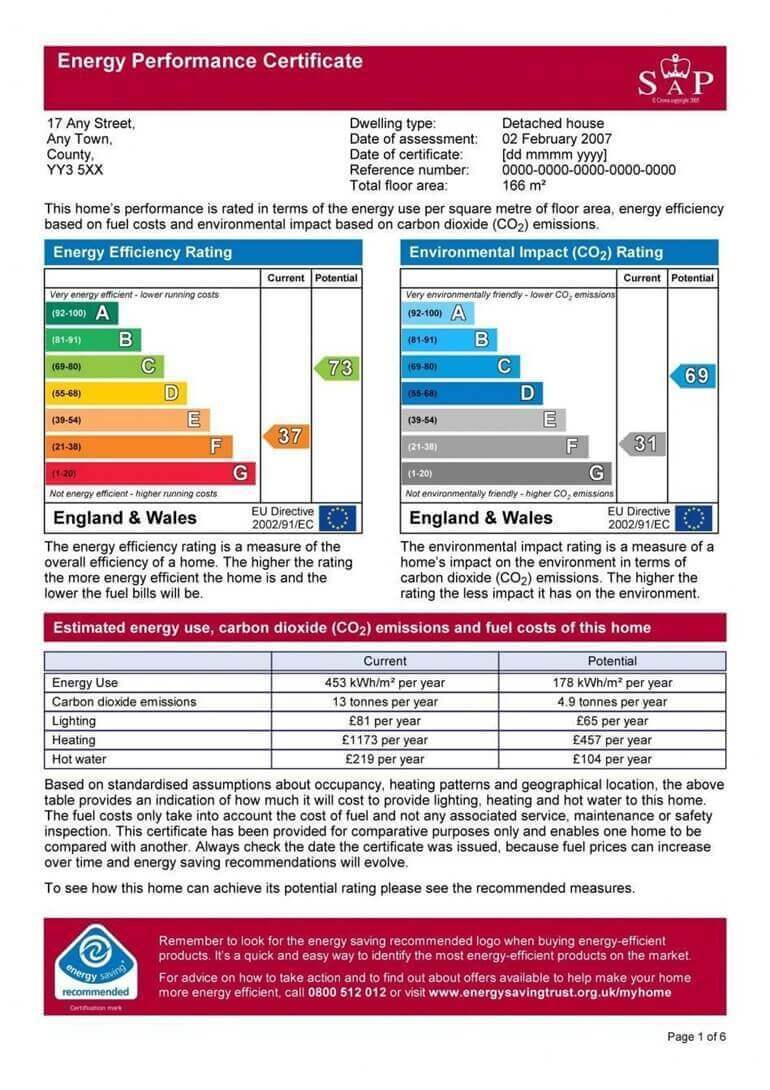Answer these simple questions and we will find you the BEST prices
Which type of solar quotes do you need?
It only takes 30 seconds
100% free with no obligation

Get up to 4 quotes from our selected suppliers by filling in only 1 form

Save money by comparing quotes and choosing the most competitive offer

Our service is 100% free and with no obligation
- GreenMatch
- Green Energy
- Green Energy Grants
- Energy Performance Certificate
Energy Performance Certificate
About the Energy Performance Certificate
All commercial and domestic properties in the UK available to buy or rent must have an Energy Performance Certificate (EPC). Energy performance surveys are beneficial for homeowners because they can help them identify ways to save money on energy bills and improve their homes (they also help to raise awareness on sustainability and green energy). If you are searching for new ways to save energy at home and reduce the cost of the bills, getting an energy performance certificate could be a good start.
What Is EPC?
The EPC is a certificate that tells you how energy efficient a building is and it gives it a rating from A (very efficient) to G (inefficient). Results will point out how costly it will be to heat and light the property and what is the current carbon dioxide emission. The EPC also shows what energy-efficiency improvements can be made and highlights cost-effective solutions to achieve a better rating. Even if you are planning to rent your home, some improvements are worth investing in, such as switching to more energy-efficient light bulbs. When issued, the EPC certificate is valid for 10 years.
See an example of issued EPC:

Why Do You Need to Get an EPC?
When you decide to market your property for sale or rent, an EPC certificate needs to be available for potential buyers. In Scotland, the EPC needs to be displayed in a visible place, such as next to the boiler. If you invest in any energy efficient solutions recommended in your EPC, you might wish to get a new EPC issued so you can include these improvements. Energy and cost effective improvements may increase the value of your property by 38%, according to a UK Government report. Customers in England, Wales and Scotland wishing to get financial support from the Government's programs, such as feed-in-tariff (FIT) for solar PV, need to prove that their home has an EPC rating of band D or above in order to receive FITs at a standard rate.
Who Can Issue the Energy Report and the EPC?
Only accredited Domestic Energy Assessors are able to produce valid EPCs. If you are selling or renting your property with the help of an estate agent, they may be able to arrange for the EPC to be completed for your property. An EPC needs to contain information about your property's energy use and suggestion about how to reduce the use of energy and save money.
How to Apply for the EPC?
The first step towards getting EPC is finding an accredited assessor that will access your property and produce the certificate.
For a list of approved EPC organisations in England and Wales, visit this page.
For a list of approved EPC organisations in Northern Ireland visit this page.
Which Buildings Do Not Need an EPC?
Properties that do not need an EPC include:
Fill in the form in just 1 minute
We strive to connect our customers with the right product and supplier. Would you like to be part of GreenMatch?





